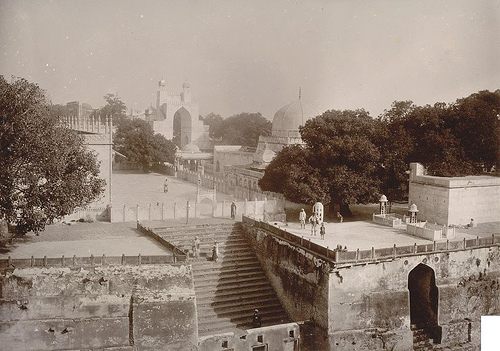Category Archives: Rajab
The Gift of a Daughter
The following is an excerpt taken from Session 10 of the Anees ul-Arwah–The Malfuzat of Khwaja Uthman Haruni (rehmatullahi alyhe)–as recorded by Khwaja Moinuddin Chishti (rehmatullahi alayhe)
He said “Daughters are a gift from God. God is satisfied and pleased with the one, on given a daughter loves her and is pleased by her. He who expresses joy at the birth of a girl is given the reward of seventy pilgrimages (Hajj) and it is as if he had emancipated seventy people from slavery. Those mothers and fathers who love their daughters, are gentle and show kindness to them, God shows kindness to them and showers His mercy upon them.”
He then said, “I once saw written in the Aathar-e-Awliyaa that the Messenger of God (peace and blessings of God be upon him and his family) said, “He who has a single daughter has five hundred years between him and the Fire.” And said, “The Prophets (may peace be upon all of them) and the Saints (may God have mercy on all of them) used to be more gentle and loving towards their daughters than their sons.”
Then he mentioned a story about Khwaja Sirri Saqati (may Allah have mercy on him) who had a daughter that he loved dearly. The daughter heard her father once say, “Would that I break my fast with a brand new jug of cool water.” On hearing her father’s wish she prepared a brand new jug with cool water and placed it next to her father. It was after the ‘asr (late afternoon) prayer and the master fell asleep on his prayer mat. In his dream he sees that in his house in Paradise Allah asks his daughter, “Whose daughter are you?” She replies, “He who drank from the new jug of cool water.” At this his hand struck the jug and broke apart. Khawaj Sirri (may Allah have mercy on him) arose and cried out, “Sirri, never desire to drink from a new jug, for he who has such a level of desire for worldliness can never reach such a state (as he had seen his daughter reach).”
After articulating all of this, the master completed his address became engrossed in his dhikrand the one in need of his prayers left with the people–all praises to God for that (lesson).
Translated by Sharaaz Khan
1o Rajab 1432 Hijri
Alastu Bi-Rabbikum–Am I Not Your Lord?
The following is taken from Session 1 (Faith) of the Anees ul-Arwah–The Malfuzat of Khwaja Uthman Haruni (rehmatullahi alyhe)–as recorded by Khwaja Moinuddin Chishti (rehmatullahi alayhe)
Then the khwaja (master), may God have mercy on him, said “I saw written in the Umdat us-Suluk of Junaid Baghdadi, may God have mercy on him, as related by khwaja Yusuf Chishti, may God have mercy on him, that when Allah, Exalted is He, said “Alastu Bi Rabbikum (Am I Not Your Lord)”, all the spirits, believer and non-believer, were immediately divided into four categories:
- Those spirits that on hearing their Lord’s call fell into sajdah (prostration) replying with heart and limb, “Balaa (Indeed)!”
- Those that made sajdah but didn’t do so with any sincerity.
- Those that believed sincerely with their hearts only.
- Those that didn’t care to reply–neither with heart nor limb.
The khwaja, may God have mercy on him, then clarified each category.
The spirits that replied Balaa (Indeed You are our Lord and Sustainer!) with heart and limb (in prostration),  became Prophets (upon them all be peace), Saints, and sincere believers. The second category that said balaa but without any sincerity are those Muslims who forsake their religion on their death-beds. The third category that said nothing but sincerely meant it are those who were disbelievers but later turned to Islam. The last category who didn’t say anything nor have any sincerity to accept the call are those who live and die as disbelievers.
After articulating all of this, the master became engrossed in his dhikr (remembrance of God) and the one in need of his prayers returned to where he came from–all praises to God for that (lesson).
Translated by Sharaaz Khan
9 Rajab 1432 Hijri















